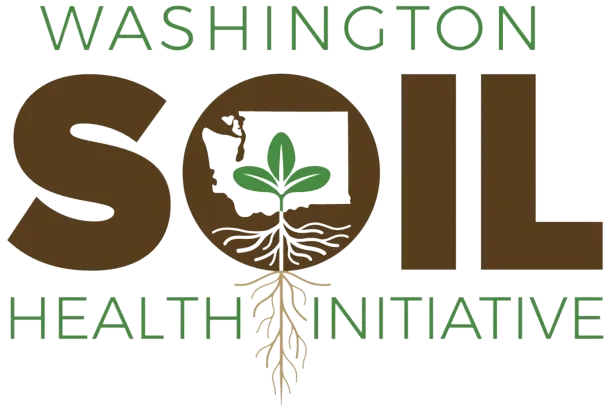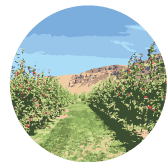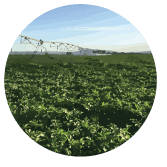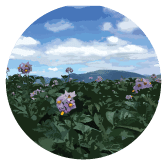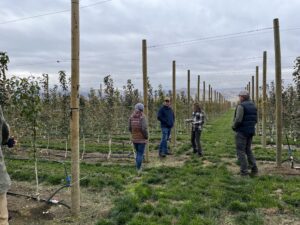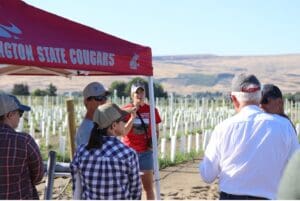Long-Term Agroecological Research and Extension (LTARE) Site Network
Developing best-managment practices for Washington's diverse cropping systems
Long-term soil health and agricultural research are crucial in creating a more resilient food system, tracking changes in carbon, and measuring economic benefits. The Washington Soil Health Initiative has invested in research to develop regionally specific best management practices to promote both environmental and economic success through creating six long-term agroecological research and extension (LTARE) sites.
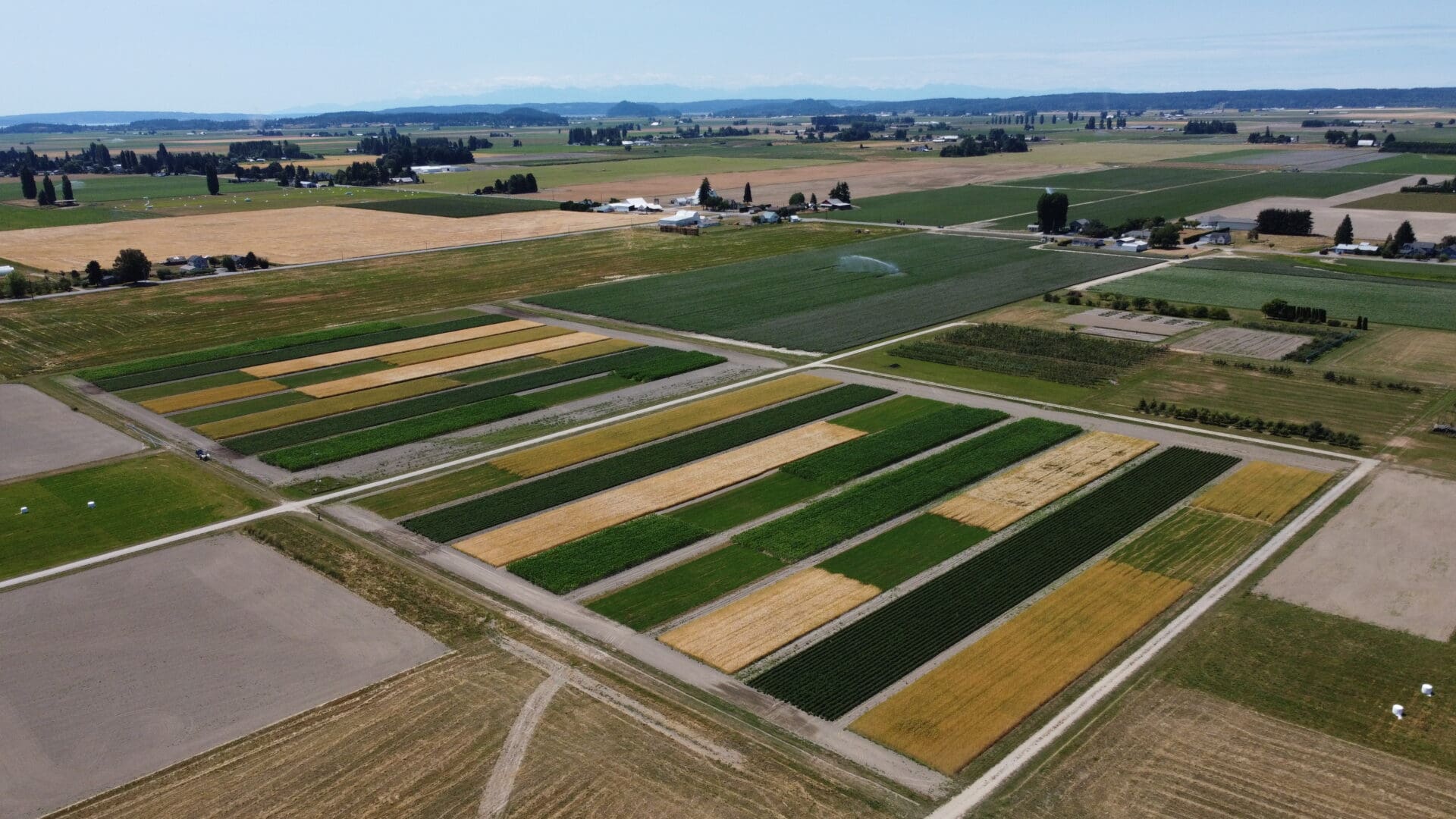
Generating meaningful outcomes in these areas often requires longer-term research efforts that span beyond typical 2-3 year grant cycles, as soil health and agricultural systems evolve slowly over time. Long-term research provides valuable insights into the complex interactions between soil health and agricultural productivity and enables the development of a more resilient food system.
The LTARE site network has two primary goals:
Measure the impact of conservation practices on soil health and farm profitability.
Create cropping system-specific guidance on soil health building practices.
WaSHI LTARE Sites
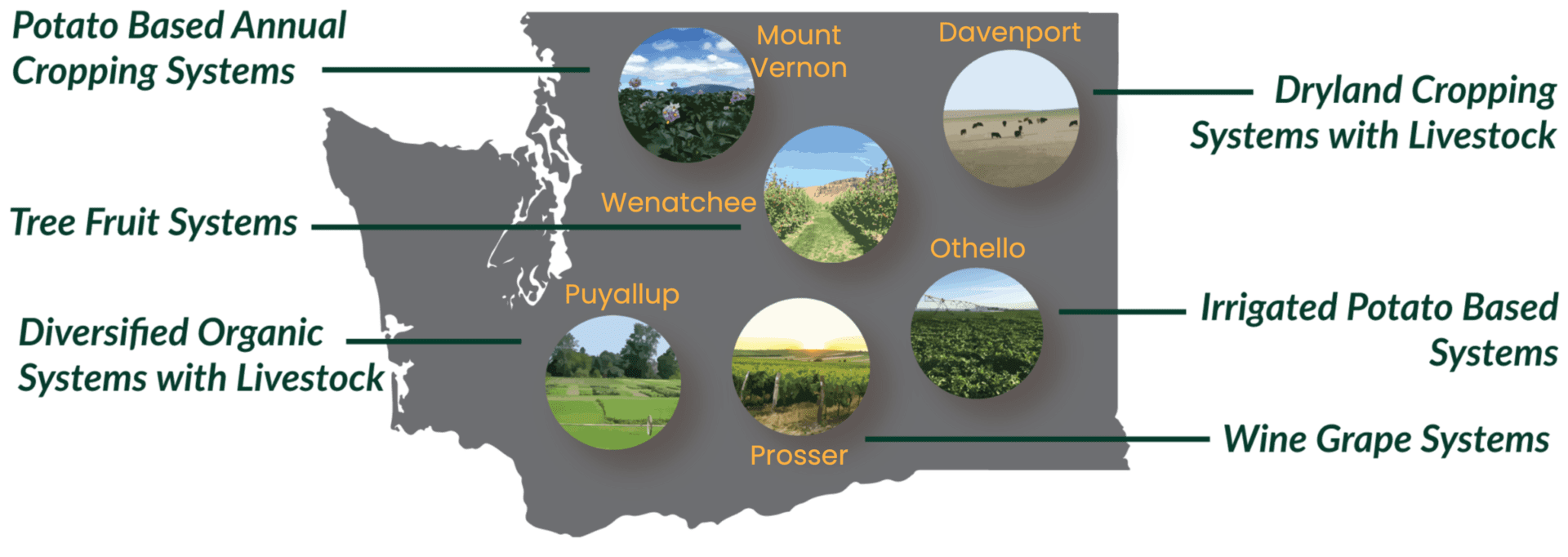
Click the icons below to learn more about each LTARE site.
What is being measured across LTARE sites?
Soil Health

Chemical—How quickly do nutrients cycle through soil, and how available are they to plants?
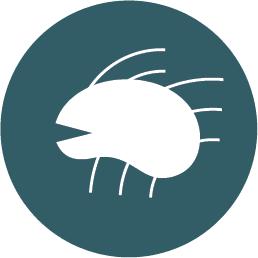
Biological—What organisms live in the soil, and what soil functions are they serving?
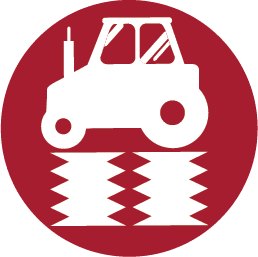
Physical—What is the structure of the soils, and how does it impact water movement and storage?
Crop Performance

Disease incidence—Are pathogens present in the soil and in populations that affect the crop's quality?

Yield—How much of the crop is produced?
Climate
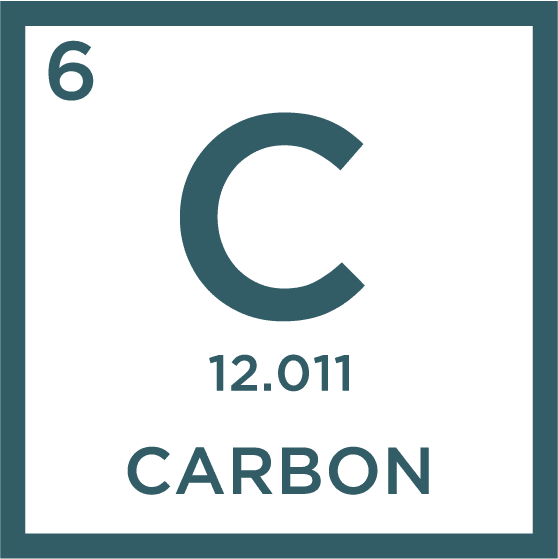
Carbon stocks—How much carbon could the soil store, and how much is it storing right now?
Economic Performance

Profitability—What does it cost to grow the crops, and how much can they be sold for?
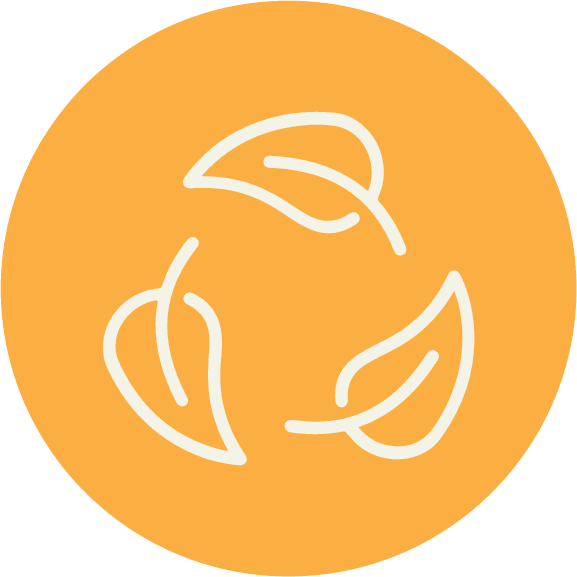
Societal benefits—What benefits does improved soil health provide for surrounding environments?
What soil health practices are being investigated?

Cover Crops

Organic Matter Additions

Reduced Tillage

Leaving Plant Residue

Livestock Integration

Cover Crops

Organic Matter Additions

Reduced Tillage

Leaving Plant Residue

Livestock Integration

Cover Crops

Organic Matter Additions

Reduced Tillage

Leaving Plant Residue

Cover Crops

Organic Matter Additions

Reduced Tillage

